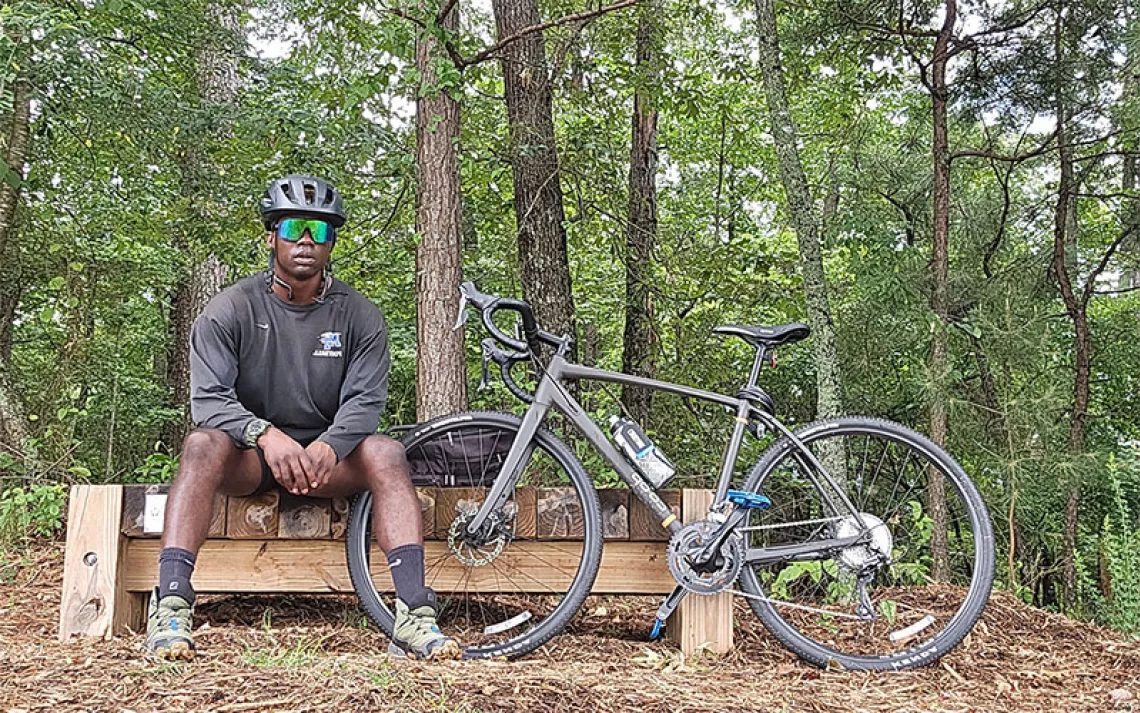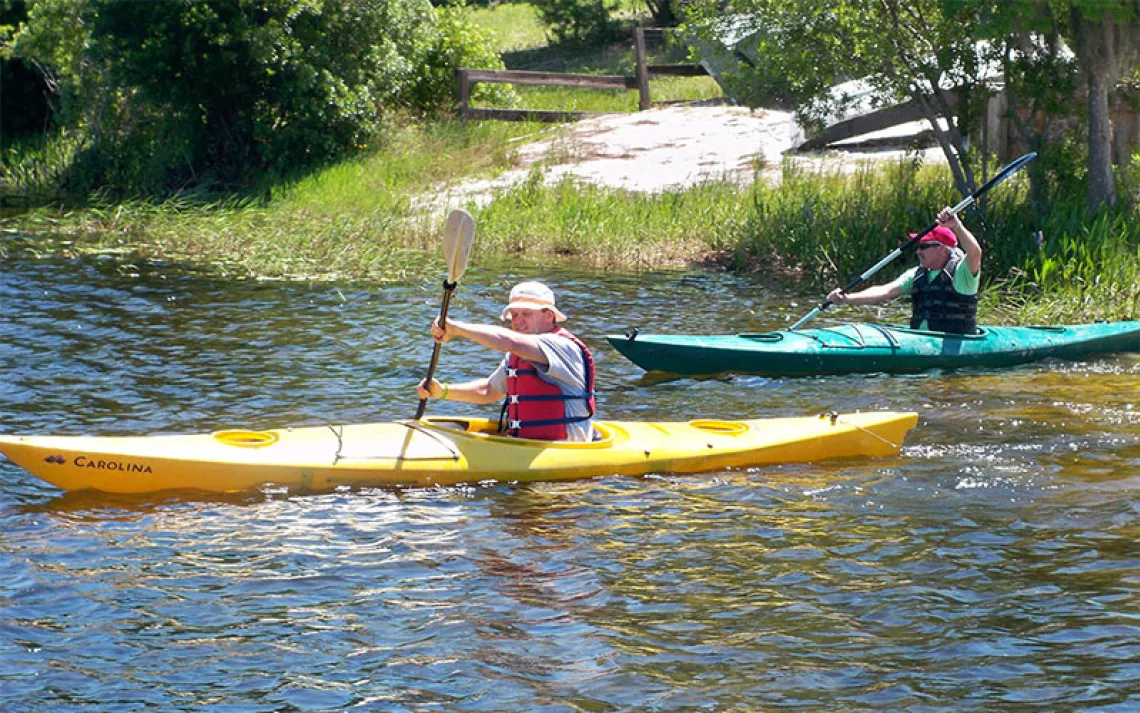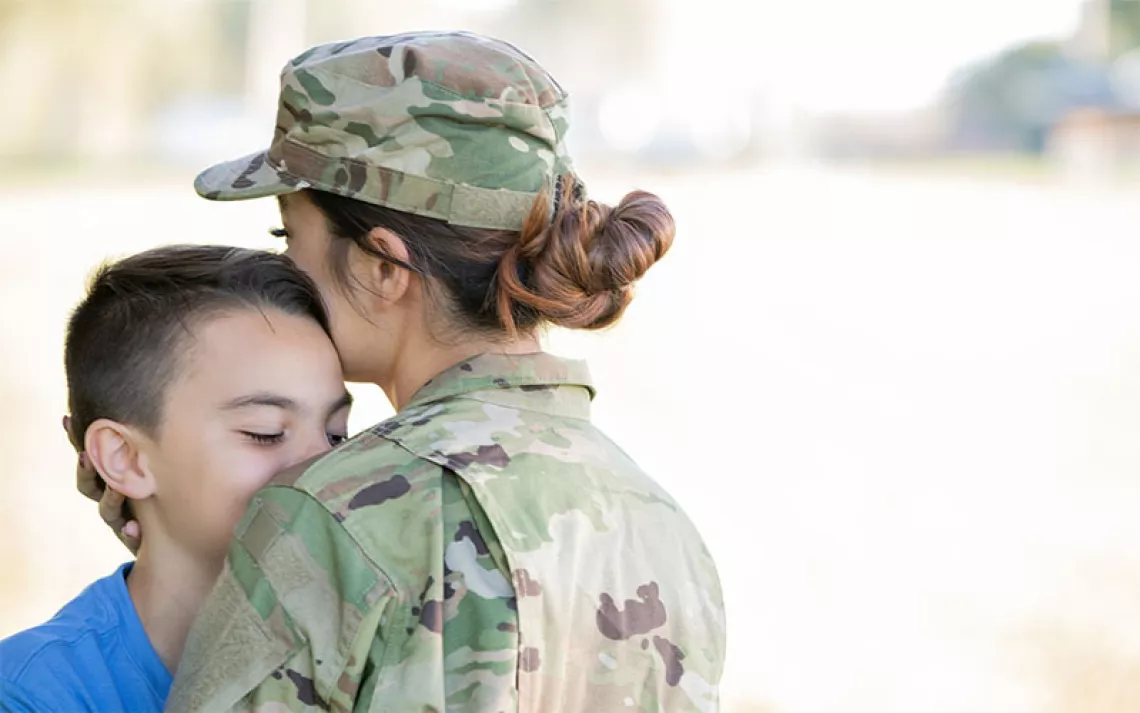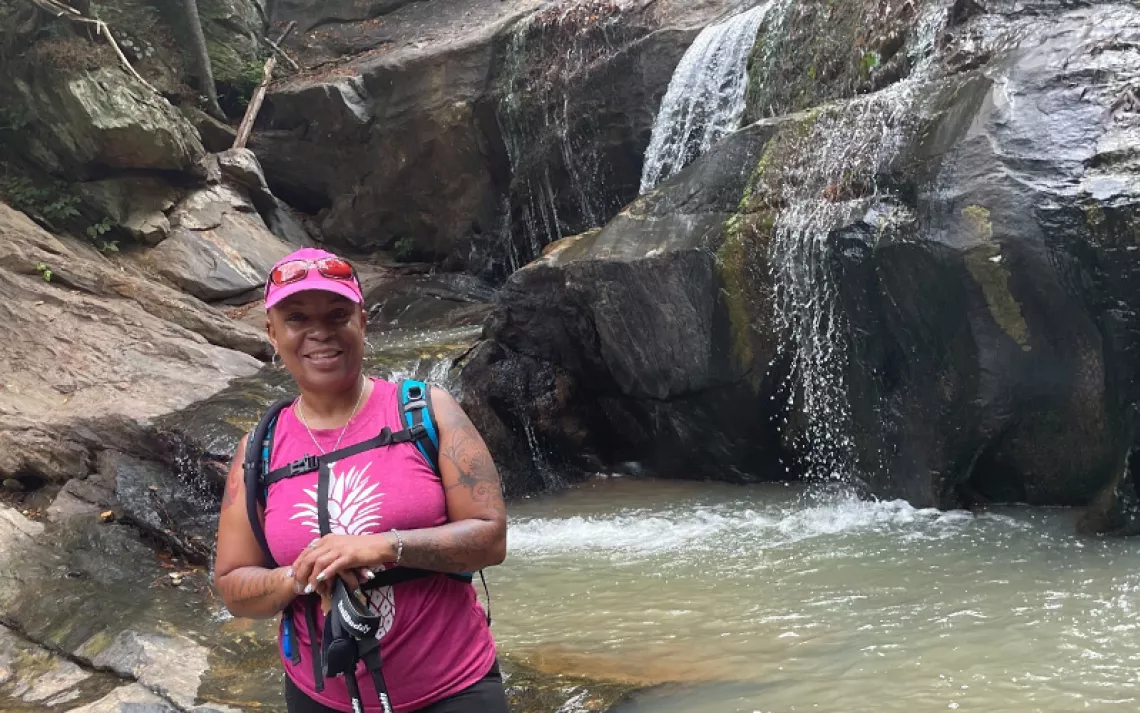Scenes From a Camping Trip for Single-Mother Military Veterans
Four women and their families find camaraderie in the outdoors

Photos by Robyn Twomey
In the November/December issue, Sierra reported on a weekend-long camping trip outside of New York City that included four military veterans who also happen to be single mothers: Sherry Swartwout, Moet Valdez, Hawoly Diop, and Charmaine Denise. The trip kicked off the latest program from the Sierra Club’s Military Outdoors program, which draws on the Outward Bound model but with a twist: To eliminate the biggest barrier to getting the single mother veteran population outside and adventuring, all outings are open to participants’ kids and support networks. That's because any conversation about access to the outdoors is also a conversation about barriers and hurdles—of which a single mother veteran is likely to have many. Aside from the obvious (issues of child care and finances), how do you go camping when you have a three-year-old, and no one to leave them with? It's a demographic prone to isolation. According to demographics from the U.S. Census Bureau, about 120,000 of the 700,000 women who've become veterans since 9/11 are likely to be single and to have children under 17. Today, women represent about 9 percent of the military. But still, it's not uncommon for a VA hospital to lack a women's clinic or any female-oriented peer support networks.
The weekend in New York's Harriman State Park last June was part of an attempt to redress this gap in services. The campers and their families got to hike, laugh, cook, beach, build fires, and practice yoga together. But more importantly, they connected with one another and fostered community. Now, these ladies continue to get together—not only to camp, hike, and kayak, but also to use adventure therapy to help transition to civilian life—and their circle has grown. Here are some scenes from the June camping trip that first brought them together (read the full story here)—and of some participants after returning home, too.
*

One of the conditions of this camping trip was that everyone partake in a group hike. Sherry Swartwout, a child of late Chinese immigrants, had long wanted to go camping and hiking, but without a car, gear, anyone to go with, or any certainty she could survive in the wilderness, she’d never before managed to make it happen. Three years out of the navy, where she was a sonar tech, she and her precocious five-year-old son Elijah are living with her brother in the same New York City public housing unit where she grew up. One day while she was studying, Swartwout, a mechanical engineering master's candidate, received an email forwarded from a contact at VA Vital, a program that helps veterans transition from military to academic life, announcing that the Sierra Club Military Families outdoors program was hosting a camping trip for single mother veterans. It sounded too good to be true—immediately, Swartwout Googled the Club to figure out whether it was "some sort of cult."

Back when she was stationed at San Diego’s 32nd Street Naval Station, Moet Valdez used to like to stay up late on off-duty nights and sleep on the beach, but never in her 27 years had she slept in a tent. Prior to the weekend in Harriman State Park, located 25 minutes north of the Bronx, Valdez hadn’t had any connection to the veteran community since leaving the Navy in 2013, two years after her daughter Harlem, now eight, was born.

Accompanying Moet and Harlem Valdez was mother/grandmother Julissa, whose laugh around the campfire was the heartiest of all. Throughout the first night and following day's group hike, Julissa never mentioned the fact that she underwent chemotherapy shortly before arriving at the campsite.

Hawoly Diop (above) is a 28-year-old Brooklyn-based navy vet with a four-year-old son. She and Moet Valdez hadn’t talked much since being on base together back in 2013, even though Valdez lives in nearby Newburgh, New York. But when Diop learned about this trip, she called up Valdez. “I was like, ‘Why not? Let’s go,” Valdez says. “Because the military was coming back. And I knew I had to listen.”

The hike consisted of a steep, 2.2-mile climb along one of Harriman State Park’s forty marked hiking trails. The destination? Harriman State Park's fire tower, a lonesome, abandoned-looking steel structure that overlooks the park’s rolling hills and the dim skyline of New York City, from atop a boulder. It was hard for some campers to hike to the fire tower, but it was crucial that everyone make it—just as it was important that the group cook dinner together, and figure out how to set up their tents together. Aaron Leonard, an army combat vet who now serves as the veteran outdoor representative for Sierra Club Military Outdoors, says there’s a specific process a person goes through when she endures and overcomes physical challenges alongside others with whom they share commonality. “When you come outside of your comfort zone and master something as a group—whether it’s just washing dishes outside, or surviving in the deep wilderness for a month—you build trust, and everyone comes out of the experience feeling better not only about themselves, but about that group.”

With this Military Outdoors program, the idea is to recruit cohorts of single mother vets from specific regions—which is why all the car campers present live in or near New York City. That way, the group can continue to meet up after the guided, funded adventure is over, and ideally, develop as a peer-supported community. Similar projects are underway in other U.S. regions.

Since venturing to the dense forests and placid lakes of Harriman State Park last June, Sherry Swartwout has become a Sierra Club outings leader. She says she loves how camping forces people to work together, for mutual benefit. “It’s the opposite of urban living, of that ‘Every Man for Himself’ attitude.”

Charmaine Denise is 46, with 15 years of Army experience and a 24-year-old son out in Hollywood, some 3,000 miles from where she lives in the Bronx. A self-described isolator suffering from post-traumatic stress, this weekend marked the first time in weeks that she voluntarily left home. Denise says she loves hiking, that she used to run marathons back when her knees still allowed for it.

Moet and Harlem Valdez left San Diego and moved back to New York four years ago, following Julissa’s cancer diagnosis. While the group was relaxing at the beach following their hike, she said she was “still high” after seeing her kid and her mother climb a mountain together. “I’d been talking to her [Julissa] about going hiking for a long time and she was always like, ‘nope’. I mean, she has bad hips and does chemo but looking at her on that hill, did it look like anything was wrong with her!?” Beyond that, Moet described her favorite aspect of camping as the “nightly debriefs” by the fire. “It was the ability of everybody to be comfortable, to talk about their real-world issues and what’s really bothering them,” she says. “I didn’t know these women from a hole in the wall, but I knew they weren’t gonna judge me. We were all people who needed hugs and understanding.”

On the second night of the trip, Moet Valdez awoke to the sound of her daughter Harlem trying to creep out of their tent to chase chipmunks, an animal the eight-year-old had, just the previous day, claimed to be afraid of.

Moet Valdez adds that she liked how the camping trip gave the kids present a chance to see their parents “figuring out issues.” Back home in Newburgh, she paused from affixing magnificent miniature gold stars to Harlem’s braids—and swiveled her daughter’s head around to face her. “See that? We do more than just argue. We hug each other and climb mountains. And you can, too.”

Valdez credits Harlem for the fact that she personally was even receptive to a random invitation like one to go car-camping. “I was really stressed one day a few months back, and Harlem came to me with some little book and said, ‘Look Mommy, I read this all by myself, and I was like, ‘I don’t care—you’re supposed to do that.’ But then I saw her face, and it was like her spirit was just done.” That’s when Moet says she realized she couldn’t continue to live like she was. “I can’t even appreciate the little moments, the little accomplishments, because I’m so pissed all the time?! I told myself, ‘She can’t live like this. I can’t live like this—I’ll be dead before she’s 18.’ Because the darkness can kill you. Is it crazy that a seven-year-old taught me to be better? Taught me that I need something more; I need friends?”

A day after returning home to their apartment at the northernmost tip of Manhattan, Sherry Swartwout's son Elijah continued to beg for s’mores. He wanted to know where his tag buddy Harlem was, and why he couldn't sleep in a sleeping bag. “We’ll definitely need to do more camping—I want my kid to grow up getting dirty and seeing racoons,” laughed his mother.

 The Magazine of The Sierra Club
The Magazine of The Sierra Club



